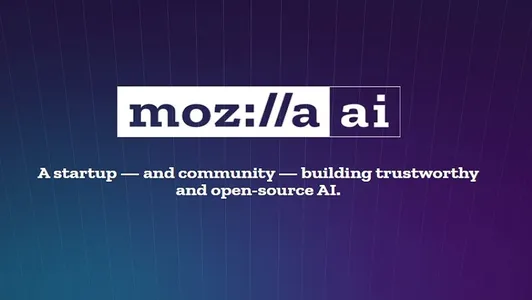In today’s digital landscape, the integration of artificial intelligence with a focus on accessibility has become a crucial concern. Mozilla is leading the charge by reinventing open source AI to create a more inclusive and user-friendly online experience. This innovative approach not only enhances functionality but also ensures that everyone, regardless of their abilities, can engage seamlessly with technology. By prioritizing accessibility, Mozilla is setting a transformative precedent for the future of AI development and its societal impacts.

In a groundbreaking move, Mozilla is reshaping the landscape of open source AI with a clear focus on accessibility. This initiative not only aims to enhance the user experience for everyone but also to ensure that the technology remains open and available to all. With innovative features and a commitment to inclusivity, Mozilla is setting new standards in the world of AI and accessibility.
Table of contents
ToggleTransforming Accessibility Through Technology
At the heart of Mozilla’s mission is the belief that technology should be accessible to all individuals, regardless of their abilities. The integration of artificial intelligence into Firefox, particularly aimed at enhancing accessibility, marks a significant leap in making digital spaces more inclusive. This transformation not only aids individuals with disabilities but also enriches the browsing experience for everyone.
Game-changing Features: Automatic Alt-text Generation
The introduction of automatic alt-text generation for images is one of the most exciting advancements. Using a fully private on-device AI model, this feature automatically describes images for users who rely on screen readers. By ensuring that images are accompanied by accurate descriptions, Mozilla empowers users with visual impairments to engage with content in a meaningful way.
Open-Source Philosophy Driving Innovation
Staying true to its open-source philosophy, Mozilla emphasizes the importance of community involvement in designing and refining these AI tools. Engaging developers and users in this process ensures that the solutions produced are practical, relevant, and, most importantly, inclusive. This collaborative approach invites feedback and encourages the continuous evolution of technology to meet diverse needs.
Collaboration and Future Prospects
Collaborations with various organizations and stakeholders are pivotal to Mozilla’s strategy. By fostering partnerships, Mozilla seeks to harness a broad spectrum of expertise and resources dedicated to enhancing accessibility. With the ongoing advancements in AI technologies, there lies immense potential to further innovate and create tools that cater to an even wider audience.
A Commitment to Privacy and Transparency
As the demand for AI solutions grows, so does the necessity for a commitment to privacy and transparency. Mozilla’s approach prioritizes user privacy, ensuring that the AI-driven features function without compromising user data. This responsible use of technology aligns with the broader goals of creating a trustworthy digital environment where users feel secure.
The Road Ahead: Envisioning an Inclusive Future
The journey that Mozilla is embarking on is not just about enhancing accessibility through AI; it is about building a future where technology serves everyone equitably. By continually reinventing and refining open-source AI tools, Mozilla is leading the charge in ensuring that accessibility remains a pivotal focus in the tech landscape.
In summary, Mozilla’s commitment to open source AI for enhanced accessibility is a testament to its dedication to inclusivity. As this initiative unfolds, users can look forward to a future where technology adapts to their needs, empowering them to navigate the digital world unimpeded.

Curious about what's new in accessibility? Accessibility Fundamentals guides you through accessibility features, content creation best practices, and AI fundamentals. The learning path is available to use in your organization's learning management system. https://t.co/TPGYdQFYNI
— MSFT Accessibility (@MSFTEnable) May 23, 2024














